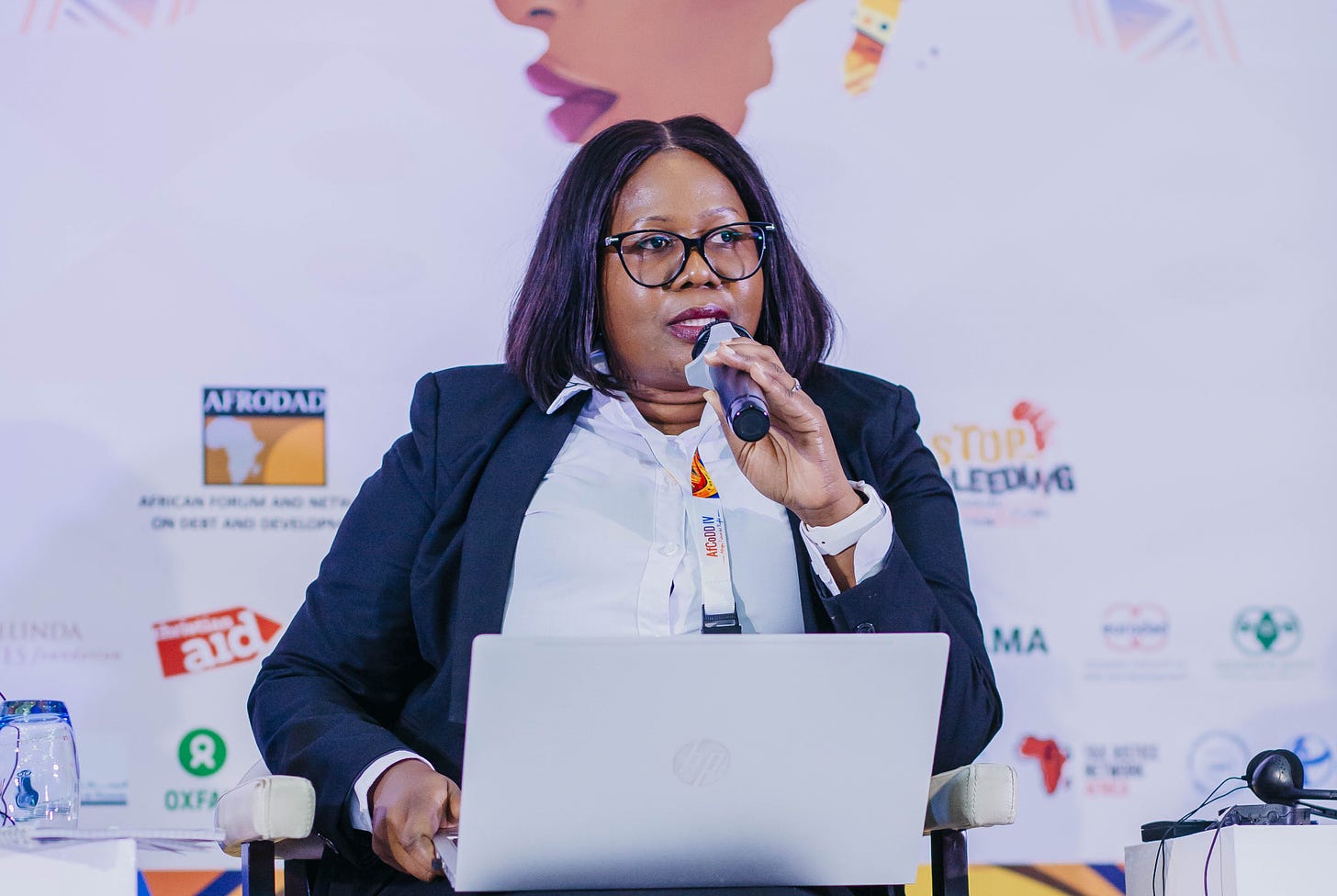Africa's Debt Crisis Demands Women's Voices: Kanguya Calls for Inclusive Power
The conference concluded with a call to action for African leaders to prioritize women's empowerment as a key component of achieving sustainable development and economic justice.
MAPUTO, Mozambique — “Gender equality in political power is essential for achieving economic justice,” declared Edna Kanguya, Senior Budget Analyst from the Zambian Parliamentary Budget Office, at the 4th African Conference on Debt and Development (AfCoDD IV) in Maputo, Mozambique, writes Winston Mwale.
Kanguya’s remarks, delivered during a session focused on the role of women in power, underscored the critical link between women’s empowerment and economic progress on the continent.
Kanguya acknowledged the persistent underrepresentation of women in key decision-making positions and resource allocation in Africa.
“Women constitute a significant portion of the population, but it is regrettable that they continue to be underrepresented in key decision-making and also in allocation of resources,” she said, highlighting the need for change.
The conference, which took place from August 28-30, dedicated an afternoon session to examining the role of women in power across all sectors.
The session, “Women in Power: Power, Politics, and Resources,” focused on overcoming the barriers that women face and ensuring they have a significant voice in shaping policy and resource allocation.
Kanguya explained that the historical context, with men dominating power structures, has resulted in a marginalization of women and a disproportionate distribution of resources.
“Men have always dominated or centered around power,” she said, “and this has marginalized women.”
She emphasized the need for a shift in thinking and the importance of including women's perspectives at all levels of decision-making.
“Women will speak out for eliminating or eradicating menstrual poverty,” she said, citing specific examples.
“Women will speak out in advancing sexual and reproductive health rights. Women will speak up, speak out where it concerns allocating resources to retain women, who are girls, who are falling out of pregnancy.”
“We must have equal voices with the men,” Kanguya added, stressing the need for women to have a seat at the table when decisions are made about resource allocation and policy.
The conference concluded with a call to action for African leaders to prioritize women's empowerment as a key component of achieving sustainable development and economic justice.




